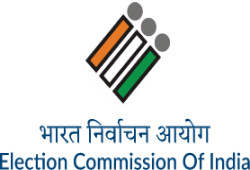
At the Samvidhan Bachao (Save the Constitution) rally organised by the Congress in Bhubaneswar on July 11, Leader of Opposition Rahul Gandhi called out the Election Commission of India for “stealing” the elections as part of a mass disenfranchisement exercise in Bihar slated for polls in November this year, under the guise of undertaking the Special Intensive Revision (SIR) of electoral rolls, which had already been completed in 2005.
The previous day, a two-member bench of the Supreme Court, while upholding the constitutionality of SIR, suggested that the ECI may consider the addition of three more documents, viz. Aadhaar, voter’s card (EPIC) and ration card in addition to the 11 documents already listed on the ground that the registration exercise according to the ECI’s submission was not ”exhaustive” and that Aadhaar though not deemed to be a proof of citizenship could be used as an identity-bearing document.
Restarting the SIR exercise in Bihar, has been a deliberately thought-out plan to bring in one-party rule which runs contrary to the ethics of the constitution and ignores the significant diversities of political cultures across the country
Incidentally, Aadhaar is used to generate all the supporting documents, therefore its exclusion by the ECI seems illogical. The Election Laws (Amendment) Act, 2021 had amended the RP Act, 1950 to include Aadhaar as a valid document to establish the identity of the voter.
According to the Unique Identification Authority of India (UIDAI) website, Aadhaar coverage in Bihar is at 94 % and therefore there is no reason for the EC not to include the Aadhaar as an acceptable document. This smacks of the integrity of the voter registration process which is aimed more at exclusion than inclusion of genuine voters.
It may be noted that the ECI had conducted a similar exercise in Bihar in 2003 and had then needed two years to finalise the revised electoral rolls. To again revise the electoral rolls, that too within one month’s time, is both unprecedented and impractical. Surmising the possible cause of this measure implemented by the ECI “all of a sudden” suggests government attempts to keep out a certain category of voters, mostly the marginalised including minority groups, who may not be able to procure the required documents in such a short time.
This smacks of the integrity of the voter registration process which is aimed more at exclusion than inclusion of genuine voters
These include birth certificates, passport, matriculation certificate, National Register of Citizens, family register, land/house allotment certificate, pension payment order or any identity card issued by the government/local authorities prior to July 1, 1987. Not surprisingly, the combined opposition led by the RJD and comprising of the Congress, left parties and AIMIM (representing the Muslims) led a mass agitation (Chakka Jam) last week to garner popular awareness against the ECI’s shenanigans.
Even if by some miracle citizens manage this bureaucratic treasure hunt, does the EC possess the manpower to verify them all?
ECI has highlighted SIR as an exercise to ensure that no eligible voter is left out while no ineligible person is entered in the electoral rolls. However, as observers point out, it is not the essence of SIR (Sec 21 of the People’s Representation Act, 1950 mandates the ECI to carry out the exerecise) which is wrong, but the method and procedures adopted which leave a cloud of suspicion in the minds of the largely illiterate, impoverished and uneducated sections of the society, and the bulk of migrant labour, who mostly do not have a permanent address to register. This stands contrary to the ECI’s claim of having done large-scale consultations with all opposition parties as well as the BJP in arriving at this decision.
As a columnist in a national newspaper observed on July 13, “The EC’s requirements betray not merely incompetence but something far more troubling - a fundamental contempt for the poor.” In rural Bihar where around 65.58 percent are homeless, the EC expects citizens to produce land allotment certificates. Where illiteracy is rampant, they demand school certificates. Where poverty forces migration, they require ‘permanent residence proof’. “And the timeline-less than one month for potentially millions of voters to gather these obscure documents.
Rahul Gandhi’s allegations of vote rigging in the last Maharashtra assembly elections, voices the anger and concern of citizens, of a brazen violation of constitutional norms
Even if by some miracle citizens manage this bureaucratic treasure hunt, does the EC possess the manpower to verify them all?” the newspaper columnist asks. The EC has stated in response that it has put more than 1 lakh Block Level Officers, 4 lakh volunteers and more than 1.5 lakh Booth-level agents appointed by political parties to conduct this mammoth exercise, and that 80% of voter registration forms have already been collected.
The brief for the SCI in its hearing of July 11 was to focus on the EC’s power to undertake this exercise (which is satisfied by Sec 21 of the RP Act), the manner in which the revision exercise is conducted and the timing thereof. On both the latter grounds the EC has much to explain. The SC has given July 21 as the date to file a counter-affidavit by the EC while the final hearing has been fixed for July 28, just days before the electoral rolls are to be finalised.
Coming in the wake of diminution of the EC’s credibility with several PILs filed by activists and the Association for Democratic Reforms (ADR) alleging voter (read EVM-VVPAT) manipulation and significant discrepancy between votes cast and votes polled in the recent State elections which the EC has treated in a lackadaisical manner, has given rise to further concern. Rahul Gandhi’s allegations of vote rigging in the last Maharashtra assembly elections, voices the anger and concern of citizens, of a brazen violation of constitutional norms (universal adult suffrage under Article 326).
Opposition parties including the Congress have rejected the ONOE proposal
Furthermore, the spectre of the NRC, which is included as one of the 11 documents (done in Assam to segregate “foreigners” from bonafide citizens), could find a backdoor entry into Bihar making this a mechanism for exclusion rather than a genuine enfranchisement exercise. The Home Minister’s ominous declaration that SIR is going to be implemented in all States coming up for elections in the future starting with West Bengal and Tamil Nadu early next year has added to doubts about the government’s intent to “standardise” election procedures.
Linking this to the larger issue of “One Nation One Election (ONOE)”, which was first introduced in the BJP’s 2014 election manifesto and given concrete shape in the PM’s declaration in his Independence Day address last year when he said, “I request everyone to come together to achieve the resolve of “One Nation One Election” which is the need of the hour”, the situation demands serious introspection.
An 8-member high-level committee led by former President Ram Nath Kovind was subsequently formed to delve into the pros and cons of ONOE which would require several provisos of the constitution (Articles 83, 85,172,174,356) to be amended. The committee has hitherto held several sittings where former Chief Justices have given their views about the admissibility of ONOE.
Jagdeep Chhokar, founder of ADR in his paper, “Simultaneous Elections: Striking at the Roots of Parliamentary Democracy” has argued that the combination of elections of Union and State governments is flawed as it would require extensive amendments to the constitution besides upsetting the balance of power between the Union and State governments. Opposition parties including the Congress have rejected the ONOE proposal.
The government is once again playing for higher stakes. Restarting the SIR exercise in Bihar, has been a deliberately thought-out plan to bring in one-party rule which runs contrary to the ethics of the constitution and ignores the significant diversities of political cultures across the country. This does not augur well for the continuance of constitutional democracy in the long run.




